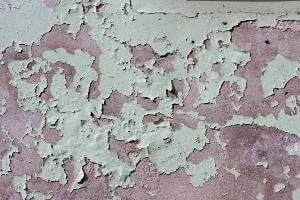Blog
What are Your Rights When Renting a Home with a High Risk for Lead Paint?
Posted on behalf of Peter T. Nicholl in Lead Paint Poisoning Published on November 20, 2018 and updated on June 4, 2025. Are you planning to rent property that was built before 1978? If you are, you could be at risk for exposure to lead paint, which can cause many severe health problems. This is why you need to know your rights as a renter when moving into a property with a higher risk of containing lead paint.
Are you planning to rent property that was built before 1978? If you are, you could be at risk for exposure to lead paint, which can cause many severe health problems. This is why you need to know your rights as a renter when moving into a property with a higher risk of containing lead paint.
Our Maryland lead paint poisoning lawyers at the Law Offices of Peter T. Nicholl can help explain your rights and your options for legal recourse if you or your loved ones were adversely affected by lead paint. Schedule a free legal consultation today.
What the Owner Must Do Before You Move In
Your landlord is required to do certain things before you move into a property built before 1978, including:
- Giving you information – Under the Maryland Reduction of Lead Risk in Housing Law, your landlord is legally required to give you the Notice of Tenant Rights, also known as the Environmental Protection Agency (EPA) brochure titled “Protect Your Family from Lead in Your Home,” and a copy of the lead inspection certificate for your apartment on the day you move in or before.
- Registering the property – Your landlord is responsible for registering the property with the Maryland Department of the Environment and must pay a registration fee.
- Passing a Full Risk Reduction Inspection – Your landlord must secure a passing Full Risk Reduction certificate before you move into the property.
There are additional requirements for landlords if there is a child under six or a pregnant woman living in the home.
Telling the Owner About Paint Chipping
To take advantage of the tenant protections related to lead paint, renters are required to notify their landlords of chipping paint or structural defects. This notice must be in writing – you can either write a letter or use the state’s statutory “Notice of Defect Form.”
You should send the letter via certified mail, return receipt requested so that you will have evidence that you sent the letter and that your landlord received it. Your landlord has 30 days from receiving the notice to ensure the property meets the Modified Risk Reduction Standard.
When Owners Do Not Deal with Defects
If your landlord has failed to remedy a dangerous lead paint problem, you have a number of protections under the law. Your first step should be to make a referral to the Maryland Department of the Environment’s Lead Poisoning Prevention Program by calling the agency. You will need to provide a copy of the Notice of Defect Form and any verification you received from the owner that he or she received your notice.
Rent Escrow
You have the right to file a complaint for Rent Escrow in the county district court where you reside. The purpose of the complaint is to request to pay your rent into a separate escrow account until the problem is remedied.
This process ensures that you are still fulfilling your legal duty to pay rent while also providing an incentive for your landlord to remedy the dangerous condition that threatens your health and that of your family. You will have to appear at a hearing and explain how your landlord is violating the lead paint laws. Having an attorney during this process is critical to present the best case possible to the court.
Protection from Retaliatory Eviction or Rent Increase
It is unlawful for a landlord to evict a tenant for complaining about lead paint or other dangerous conditions on the property. It is also unlawful to raise the rent after the landlord is notified of the problem. If either of these actions occur within two months after the lead problem is fixed, it is presumed by law that such action is retaliatory unless the tenant has failed to pay rent.
Contact an Experienced Lead Paint Attorney
If your landlord has put your health in jeopardy by not disclosing lead paint dangers or not making necessary repairs, it is important that you have a strong legal advocate on your side. The attorneys at our firm are experienced at helping individuals seek compensation for lead paint exposure.
We can discuss your possible avenues for recovery during a free, no-obligation consultation. We can handle all aspects of your legal claim while you focus on your recovery. We will take into consideration the full extent of your damages when negotiating a fair settlement.
We work on a contingency fee basis, so you are charged no upfront fees and only owe us for our legal services at the time you receive a settlement.
Fill out a Free Case Evaluation form today.

